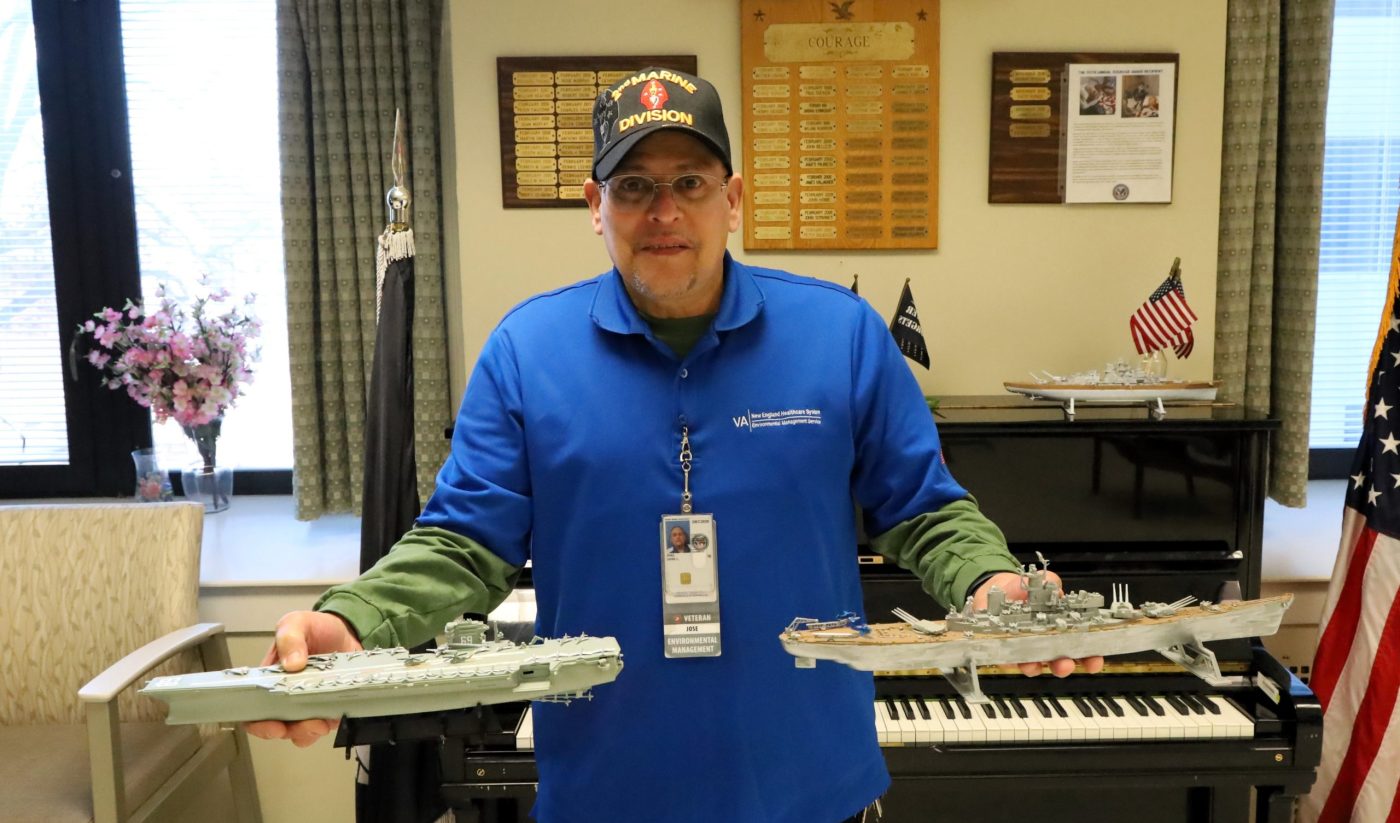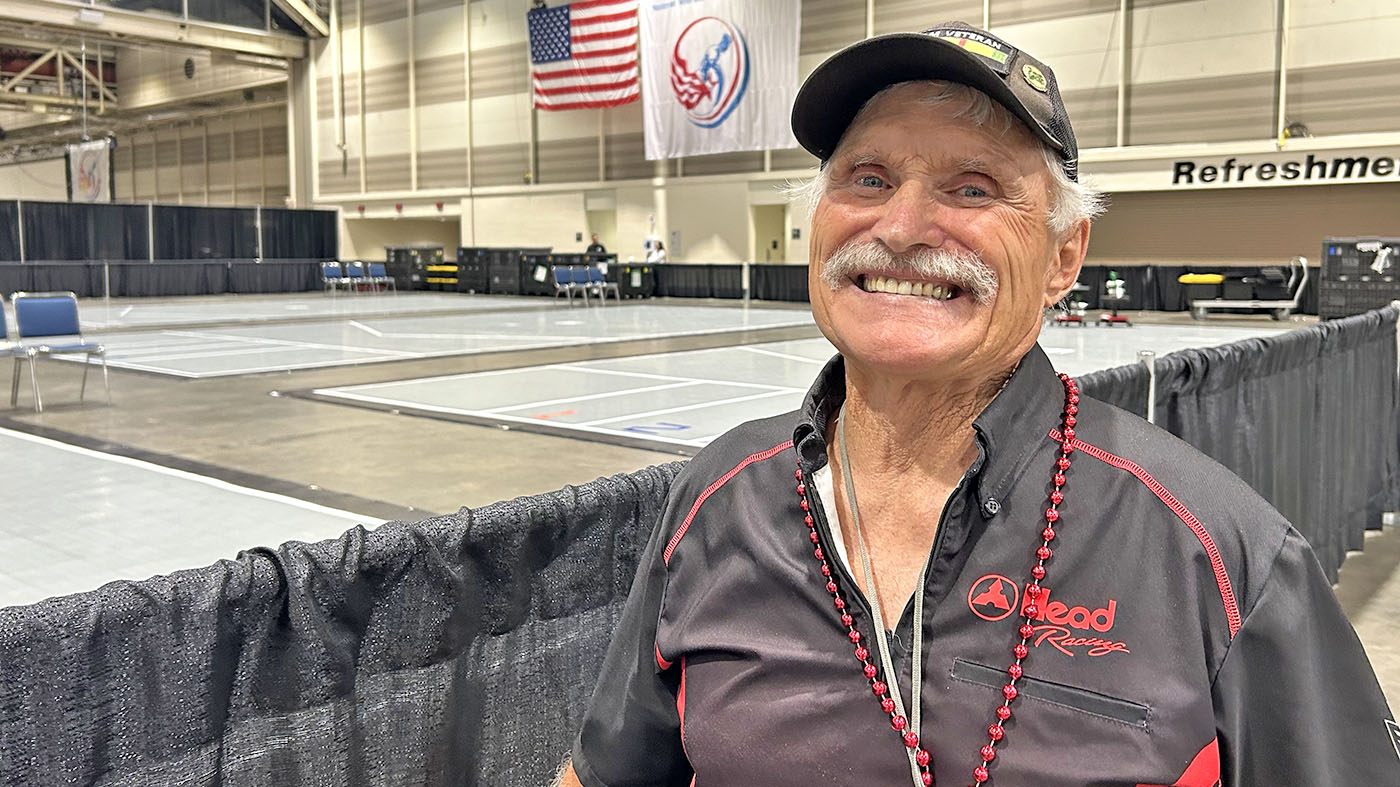VA’s Veterans Health Administration (VHA) leaders have identified 10 “gold status” practices following a “Shark Tank”-style competition held last summer. These practices address key areas in which VHA can improve its health care for Veterans.
The 10 winning ideas were selected from among 19 finalists and their final pitches were viewed by more than 160 people. Champions for each of the 10 practices completed a six-month facilitated replication at one or more VA facilities adapting and implementing their programs, leading to gold status practices being replicated at over 40 sites.
The following are the winning practices:
A Best Practice
The Collaborative Consult Scheduling Model
The lack of timely scheduling of consults and inconsistency in consult management often results in serious delays in a patient’s care. The new model facilitates a partnership between services to create a dedicated team of advanced medical support assistants to focus on consult scheduling that starts every day with a morning huddle every day. This allows the team to address several consults for a single Veteran. Implementing facilities include West Texas VA Health Care System (Big Spring, Texas), and the William Jennings Bryan Dorn VA Medical Center (Columbia, South Carolina)
VistA Automation for Prosthetics
Prosthetic and Sensory Aids Service’s workload outpaces VHA growth every year. An analysis of eight sites over the past five years identified a 40 percent increase in administrative workload, but only a 9 percent increase in staff. Approximately 37 percent of the workload consists of repetitive tasks. The Iowa City VA Health Care System automated the home oxygen billing process by integrating Microsoft Excel and Veterans Information Systems and Technology Architecture resulting in staff longer having to print and navigate an average of 200 pages and 1,500 line items for each home oxygen bill. Implementing facilities include Kansas City VA Medical Center (Kansas City, Missouri) and VA Maine Healthcare System (Augusta, Maine)
Care coordination
Coatesville VAMC home-based primary care interdisciplinary project to reduce hospitalization of Veterans with Chronic Obstructive Pulmonary Disease (COPD), congestive heart failure and pneumonia
Multidisciplinary teams provide zone charts on signs and symptoms to educate caregivers and patients on disease management. They contact community providers to coordinate care and discharge planning. This includes requesting medical records and medication lists prior to discharge. Finally, the team requests hospital discharge planners set up home care services. The Tennessee Valley Healthcare System (Nashville, Tennessee) is implementing this practice.
An innovative de-prescribing approach to medication management
The use of multiple medications may be appropriate and necessary in most cases to optimize medical conditions or a veteran’s quality of life. However, multiple medications can potentially expose patients to unnecessary risk. Pharmacists will us the VIONE model, which stands for Vital, Important, Optional, Not indicated, and Every medication has a specific indication for use to review each patient’s medication profile to identify appropriate medications that a patient may no longer need. This reduces the risk for patients and also reduces drug costs. The Iowa City VA Health Care System (Iowa City, Iowa) is implementing this practice.
Quality and Safety
SharePoint construction safety tool for all VHA facilities
The VHA construction safety web tool provides an electronic means to document construction safety inspections. The tool tracks construction safety deficiencies from when they are first discovered to the corrective action taken to ensure compliance with federal regulations. The system emails information to the contractor providing it with written documentation of the deficiency as required by Federal Acquisition Regulations. VA’s South Texas Veterans Health Care System (San Antonio, Texas) is implementing the tool.
Substance use and suicide prevention group therapy module
Historically, providers have not integrated suicide prevention and substance use disorder treatment. Collaboration between the two specialties can assist in identifying at-risk veterans and provide proper care sooner, possibly saving lives. The implementing facility will pair a substance treatment specialist with a suicide prevention coordinator to facilitate 1-hour group sessions to explore risk factors and warning signs for suicide, and helps participants create personalized safety plans. The intervention also provides information regarding Veteran’s crisis line and local resources. VA’s Tuscaloosa VA Medical Center (Tuscaloosa, Alabama) is implementing the practice.
Veterans Experience
Community housing fair
With community partners, the Central Alabama Veterans Health Care System homeless team created the Community Housing Fair. This is a one-stop shop event to help homeless Veterans achieve permanent housing status in less than eight hours. Community partners include utility companies, Veteran-centered landlords, local housing authority, supportive services for Veteran family organizations, employers, Alabama State University, VA transportation and social workers. Veterans were able to select move-in ready housing and obtain financial assistance. This allows Veterans to move into a permanent residence the same day of the event. The VA Sierra Nevada Health Care System in Reno, Nevada will hold housing fairs.
Novel FLOW 3 System provides accurate and reliable real-time data for process control and reporting of prosthetic consults
FLOW3 is a workflow management system that incorporates three custom-designed features to address issues with the process for authorization of artificial limbs. The system will allow VA to provide Veterans with their prosthetics faster than before. The system is being implemented in VA Integrated Service Network 12 and the Great Lakes Health Care System.
Partnering with Veteran service agencies and faith-based organizations to prevent Veteran and service member suicides
This program trains clergy and congregations to identify and refer at-risk Veterans and service members to VA care. Trainees can refer by way of Veterans crisis line and related resources, including local community-based outpatient clinics and other VA services. The suicide prevention coordinator and lead chaplain present information on how to identify, interact and refer Veterans and service members. Implementing Facilities and VISN: Fargo VA Health Care System (Fargo, North Dakota): VA Salt Lake City Health Care System (Salt Lake City, Utah); and VISN 10/Ann Arbor Healthcare System (Ann Arbor, Michigan)
VeTRANS-Veterans transportation project
The VeTRANS Project is a collaborative solution between voluntary service, social work service and health administration service that provide transportation to Veterans discharged from acute care or the emergency room. It applies to Veterans who do not qualify for beneficiary travel or have a viable form of transportation. Social work service works with Veterans and his or her care team to determine the safest way to get home. Social work contacts a community transportation carrier, who has already completed a vendor application, and arranges a ride. Once the ride is completed, the carrier provides an invoice to VHA for the official cost of the transportation. Donated funds secured through voluntary services pay for the bill. Implementing facility: Central Alabama Veterans Healthcare System (Montgomery, Alabama)
The next “Shark Tank”-style competition will take place in late summer of 2018.
VA Secretary Dr. David Shulkin created the Diffusion of Excellence initiative in 2016 to identify and disseminate promising practices at VA facilities and to standardize system-wide practices that promote positive outcomes for Veterans. The “Shark Tank” competition, modeled after the ABC-TV television series “Shark Tank,” solicits innovative practices throughout VHA.
About the author: Dr. Ryan Vega is the lead for the VA Diffusion of Excellence and an academic hospitalist at the Richmond VA Medical Center. As the kead for the VA Diffusion of Excellence,. Vega oversees the initiative, which identifies best practices through VA and helps spread those practices throughout the nation.
Topics in this story
More Stories
One strategy credited for the improvement is a focus on building trust and stronger patient-provider relationships.
Army and Marine Corps Veteran started making models after being hospitalized at Connecticut VA.
Veteran Hank Ebert is a bit of a superstar in the National Veterans Wheelchair Games. He has been attending since 1993.







Greetings,
The battle VS chronic low backpain has been won in 2010-2013.
Bioscience & Biomechanics are explained. The discovery is 20 yrs ahead of NIH FUNDED research.
We are a private entity who seeks to open the door to disrupt & crush spine ignorance.
Thus post is not the place. Please contact us and heal our military forces.